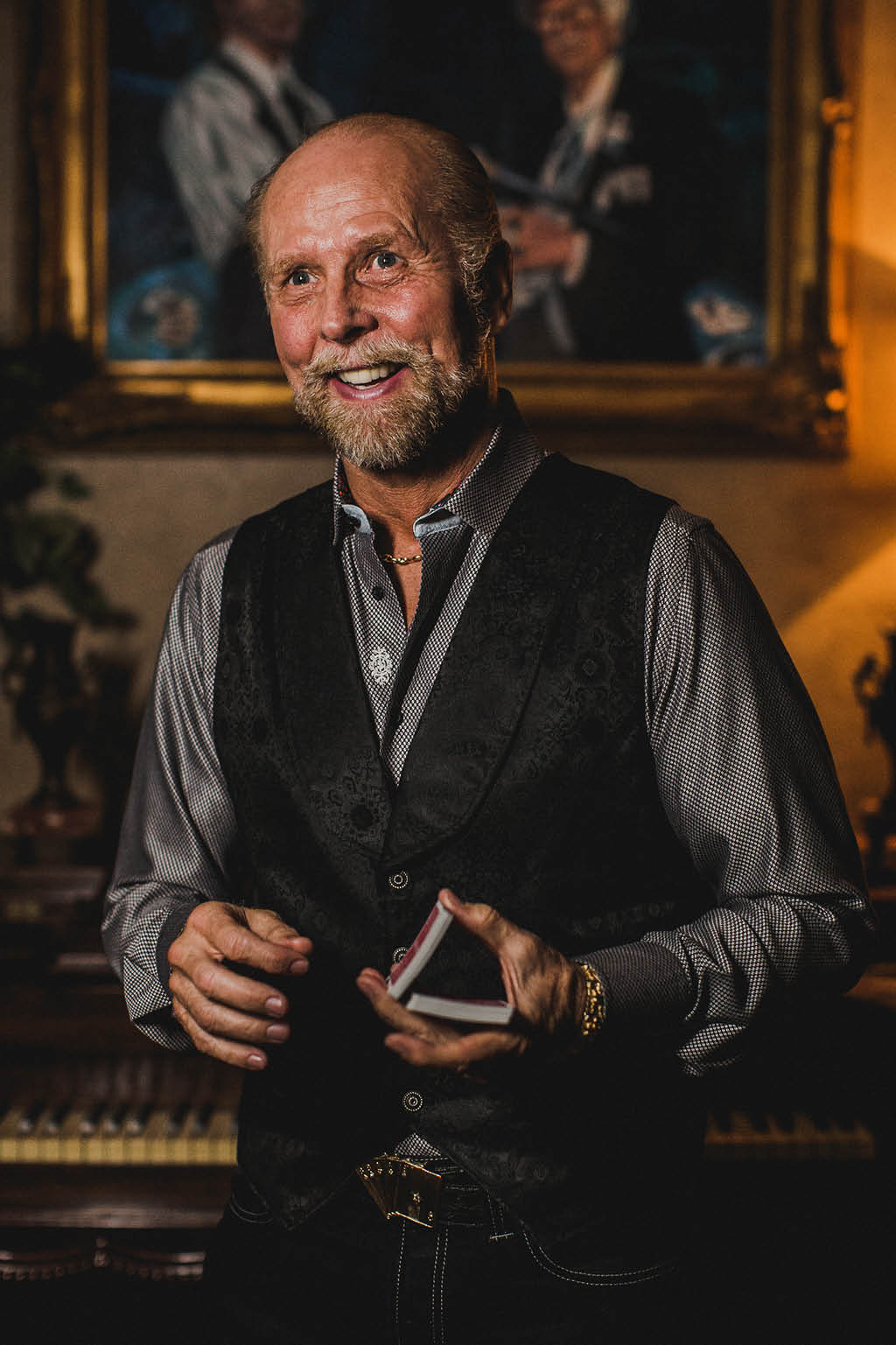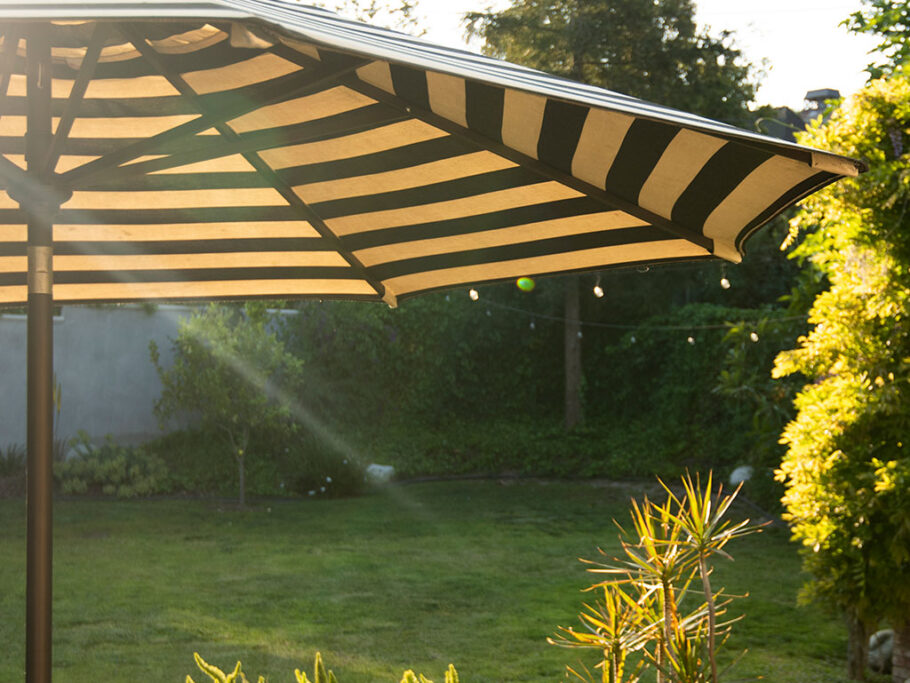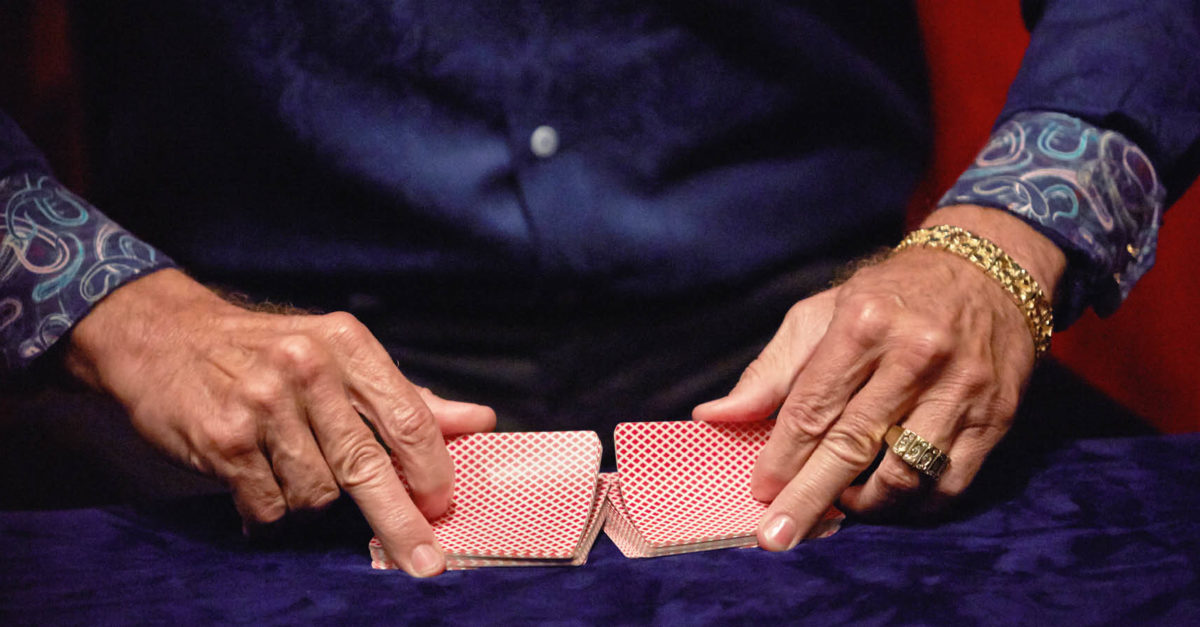Overcoming a Stacked Deck
Richard Turner is one of the top card mechanics in the world. He has won Close-Up Magician of the Year twice, is in the Magic Castle’s hall of fame, and fooled Penn and Teller—all without the ability to see. Already the subject of an award-winning documentary called Dealt, Turner’s life story is now being made into a Hollywood movie. He discusses how he developed his skills, his family and mentors, and how to win at life with the hand you are dealt.
What was life like growing up?
I had a tough childhood. I grew up in a very poor neighborhood in El Cajon, near San Diego, with my parents, sisters, and brother. I lived in the basement. During the winter, I’d have six inches of water under my bed from poor construction, which was terrible for my asthma. The house was later condemned, and we moved into a better place.
When did your love of cards begin?
Because we were poor, we only had four games: Monopoly, chess, checkers, and a deck of cards. When I was seven, I’d sit in front of the black-and-white TV and watch a show called Maverick. I thought James Garner was so cool and loved how he’d out-hustle the hustlers.
That inspired me to try to come out on top when I played M&M poker with my sisters. I’d deal out hand after hand and note the odds and percentages; I realized that if I just dealt myself one extra card in a game of five-card draw, it’d improve my odds by 20 percent.
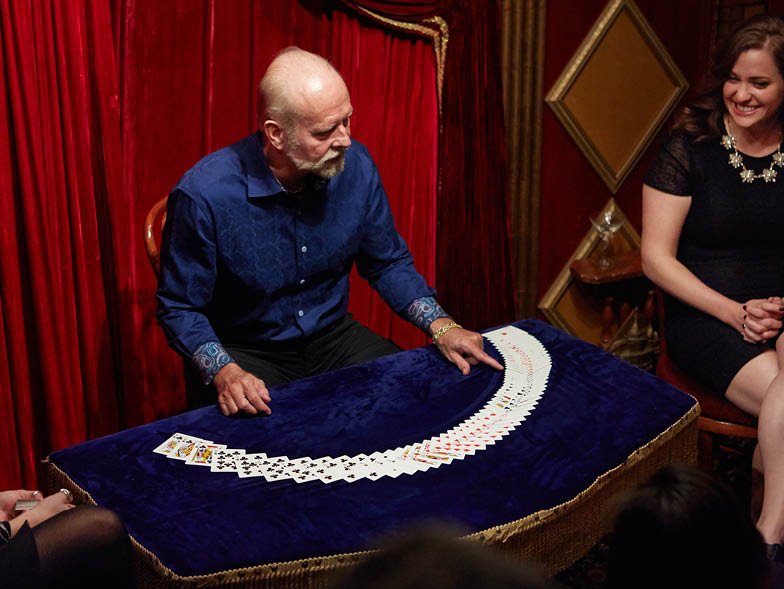
You started losing your sight at a young age. Tell us about it:
My sister Lori and I both got scarlet fever in 1963. Afterward, I was sitting in class one day looking at the chalkboard, and within sixty seconds, it was blurred. It was like someone took an eraser and smeared everything. The exact same thing happened to Lori. My family took me to see several eye doctors, but all they could do was prescribe glasses. In fifth grade, one physician finally said to my mom, “I hate to tell you, but he’ll have to go to a school for the visually handicapped.”
The next year, I went on a special bus to the VH (visually handicapped) class. By then, my macula, which is in the center part of the retina, had started to degenerate. My forward vision was the first thing to go; it was like there was a black hole in my vision that kept expanding. So I’d have to look out of the corner of my eye to see, but my corner vision measured at 20/400, which is double what’s considered legally blind. Lori eventually lost her sight, too.
The man who ran the VH department at that school, Ed Brian, was an attorney who also dedicated sixty-five years to helping the visually impaired. Mr. Brian had all kinds of 3-D toys and games to teach tactile skills, and I took a liking to them. He was also an amateur magician, so he got the trickster going in me.
Mrs. Smith, his assistant, also saw that I loved cards, so she bought a very eloquently written book on how to cheat at cards, called The Expert at the Card Table, for a nickel at a yard sale. She recorded parts of that book on her huge tape recorder and let me borrow it.
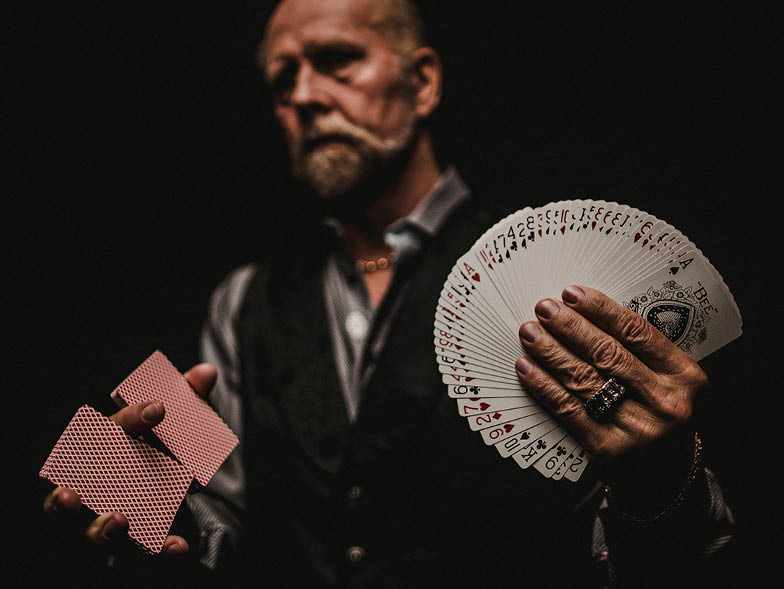
Who else helped to turn your life around?
I started karate training in 1971 at age sixteen. One of my first mentors was John Murphy, who had one of the toughest martial arts schools in the country. He not only helped me master karate but also helped me to bulk up.
I later met Steve Terrell, who was a movie star back in the ‘50s and ‘60s, and gave up my college scholarship to act in his touring theater company. One day during rehearsal, I was looking off to the side because I couldn’t see straight on. He told me that it looked odd to the audience and that I had to look at the actor. So he taught me to look directly at people based on where their voices were coming from. To this day, I picture someone in front of me so it looks like I’m looking at that person. Terrell also noticed that I was always shuffling cards in rehearsals. He told me, “If you become the best card man in the world, you’ll earn the respect of others and it will open doors for you.” I always remembered that.
When did you catch your big break?
I was living and working with another of my mentors, Bob Yerkes, the top stuntman in Hollywood history. I was invited to meet Dai Vernon, the man who fooled Houdini and was the top card man in the world, at the Magic Castle, one of the most exclusive clubs in the world for magicians. I started showing him some of my work, but he said that my actions were unnatural. He still took a liking to me, though, and I became his protégé for the next seventeen years.
Because of my discipline and fanaticism, and because I couldn’t see, I had a much finer touch with cards and did moves from a much different premise. So Vernon would describe ways he wished moves could be done, but he couldn’t do them, nor could anyone else. I’d spend thousands of hours—on average, practicing fourteen hours a day, seven days a week—trying to develop methods for doing these different moves.
Around 1980, I found a combination that would be the ultimate way of controlling cards. But Vernon said it was impossible: my brain couldn’t work that fast, my hands couldn’t be that sensitive, and I’d break rhythm. However, I realized that because of my enhanced sense of touch, I could do it—and, since then, everyone who came to the Magic Castle wanted to see how I could always deal the winning hand. I developed other new moves, and Vernon started telling everyone that I did things with cards that nobody else in the world could do. That just tickled me to pieces because he was like another father to me, much like my other mentors.
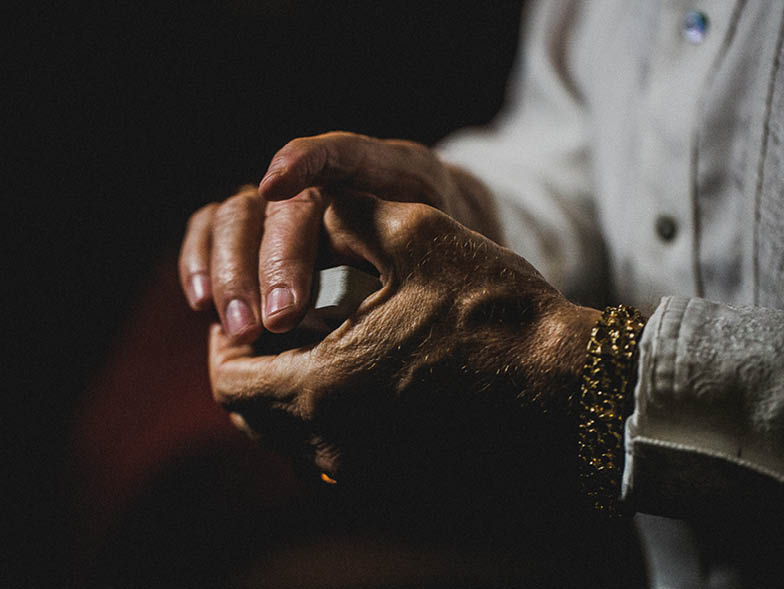
What happened next?
My first big gig as a card mechanic was on a riverboat and restaurant in San Diego; I even dressed the part as a nineteenth-century riverboat gambler for my performances. My longest run was 2,190 days in a row—that’s performing seven nights a week for six years straight. I also kept meeting with Vernon and went on TV shows like That’s Incredible! and Ripley’s Believe It or Not, which made me more well-known. For the past forty years, I’ve performed at various places across the globe for five to seven days a week.
How is a card mechanic different from a card magician?
The term card mechanic goes back to before the invention of the automobile. A mechanic is someone who fixes something. A card mechanic “fixes,” or controls the outcome of, a card game, which is a thousand times more difficult to develop the techniques for than being a card magician. That’s why there’s only a half dozen world-class card mechanics worldwide, whereas there are thousands of good card magicians.
You’ve done karate for decades. Are you more cautious with your hands now?
People have harassed me about that for forty-five years! [laughs] They always ask why I’m fighting when my hands are my living. Well, I’m a six-degree black belt. I double-wrap my hands like a boxer when I fight. Everything else gets beaten up, but my hands are OK. I hate to even admit this, but I have had twenty-two surgeries because of my high-impact living. I feel like the Six Million Dollar Man!
How many decks of cards do you own?
There are probably 15,000 just in this house. Altogether, I’m down to 100,000-something decks total. I’ve been a consultant for a playing card company for years, so they give me all the cards I want. I used to shuffle for ten to twenty hours a day, but I’m only doing three to ten hours a day now; I do a lot of motivational speaking and performing these days.
Have you been shuffling during this entire interview?
Yes, the whole time. I’m just lying here practicing my shuffling.
You mentioned your motivational speaking. Are you a people person?
I love people. Everywhere I go, I make new friends, and I maintain those friendships. Being a motivational speaker and talking about overcoming obstacles was something that I had to be dragged into, though. I’d done thousands of shows, but I was afraid of getting up and speaking in front of people. Fortunately, my beautiful wife, Kim, who was a first-place debater in college, helped ease me into speaking. Now it’s a blast. I especially love the reactions I get from kids. I talk about winning with the hand you were DEALT—dreams, excellence, analysis, loyalty, tenacity—and about taking possible out of the word impossible. People are touched by it.
Do you feel like you’re living the dream?
I cannot express how fortunate I am. Kim, who I’ve been married to for almost thirty years, is my treasure of all treasures. She’s gone all over the world with me, and we have everything we could ever dream of—and I’d give it all up, including my skills with cards, for her. My son, Asa Spades, has been my constant sidekick since he was young.
I’m in my sixties now. When I was thirty-eight, I decided I’d already had more than my fair share of blessings. Everything since then has been the cherry on top for me. I’ve been seen on TV by over a billion people in 214 countries. I’ve entertained legendary celebrities, and Muhammad Ali was a personal friend. I could go on and on. My life has just gotten better and better.
For more info, visit richardturner52.com
For more on Richard’s documentary, Dealt, visit dealtmovie.com
